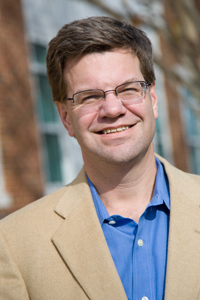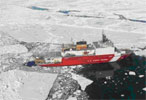Ocean Sciences at the University System of Maryland spans disciplines and campuses to study issues confronting the global and coastal oceans.
Oceanographers use a variety of techniques including laboratory studies, ship-based observations, in situ instruments, and satellite or aircraft-based remote sensing to observe the oceans. We develop models ranging from simple conceptual models to complex numerical models running on supercomputers to test our theories. |
 |
In the October 2 issue of Science, CBL professor Dave Secor and co-authors report findings that while North American and Mediterranean bluefin tuna return home to spawn, juveniles travel long distances and populations mix. They show that more than half of the juveniles collected in North American waters were of Mediterranean origin. The researchers say the new insight will help understand what's happening to the species that has been under reduced fishing quota for years in Canadian waters, but has yet to show signs of a major recovery. |

Dr. Dave Secor |


